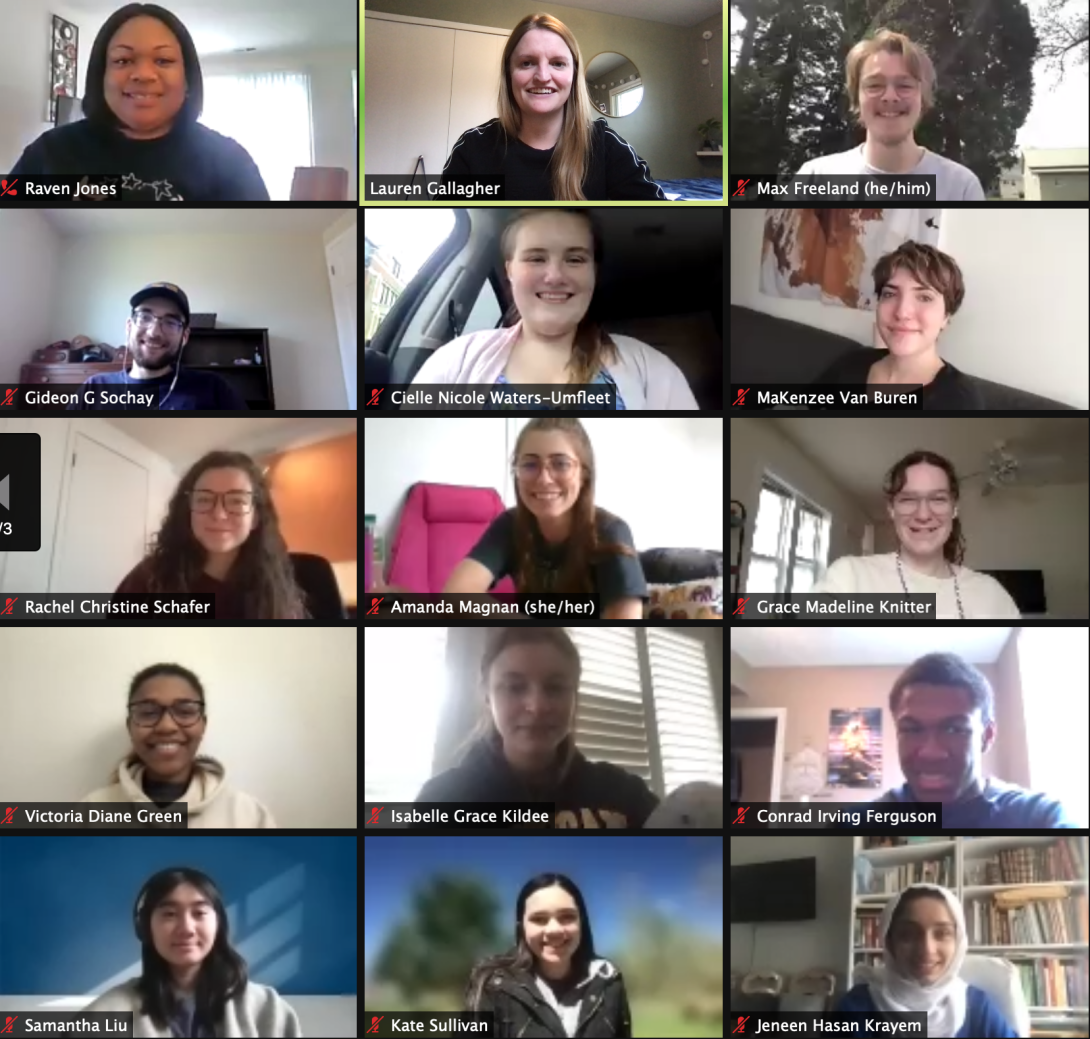The Ginsberg Center’s literacy work–including America Reads and Readers & Best–is one of the most powerful ways we provide direct service to schools in our surrounding communities. In a typical year, our America Reads program involves U-M students providing in-person tutoring to children in grades K-3 in Ann Arbor, Ypsilanti, and Detroit schools.
This, of course, has been no typical school year. Faced with the challenge of taking a largely in-person, essential initiative online, Ginsberg not only adapted our approach but did so in a way that has allowed us to reach even more area students and help teachers provide students with more individualized attention during a particularly challenging school year.
Raven Jones, Ginsberg’s America Reads and Literacy Programs Manager, notes that it was a very quick pivot to undertake. She says the biggest challenge was the initial coordination of technology, with students and schools operating on different platforms.
Once the technical issues were resolved, Jones, participating teachers, and students discovered advantages to virtual tutoring. Says Hillary Wooley, a K-5 teacher at Ann Arbor’s Logan Elementary School: “Online tutoring allowed me and the tutors to give students individual attention and to differentiate levels of support.”
It also gave Wooley the ability to check in with the U-M tutors–something previously difficult to do with everyone’s schedules. “After each session I would meet with the tutors,” she says. “I could match tutors with the neediest students and they could work together one on one.”
Wooley believes those conversations also helped the tutors feel more involved: “They knew their feedback was important and being applied to classroom lessons.”
Remote tutoring also allowed Ginsberg to offer family tutoring. “If schools didn’t think it was possible to connect in their classrooms, we encouraged them to pass the tutoring information on to families,” Jones says. “We served about 80 families, some with more than one student in their household.”
For U-M students like Pin Yi Lee, virtual tutoring was a game-changer, allowing her to participate in America Reads from her home in Taiwan: “The online format enabled me to actively participate in the program, despite being so far away.” The biggest challenge, she says, was coping with the time difference. “Luckily, I was living according to EST because some of my U-M classes were synchronous.”
“The solid foundation of Ginsberg’s literacy programs was essential to our being able to quickly and effectively take our tutoring online,” Jones adds. “It was a success across the board and allowed us to provide direct service despite the year’s challenges.”
Learn more about our literacy work here.

